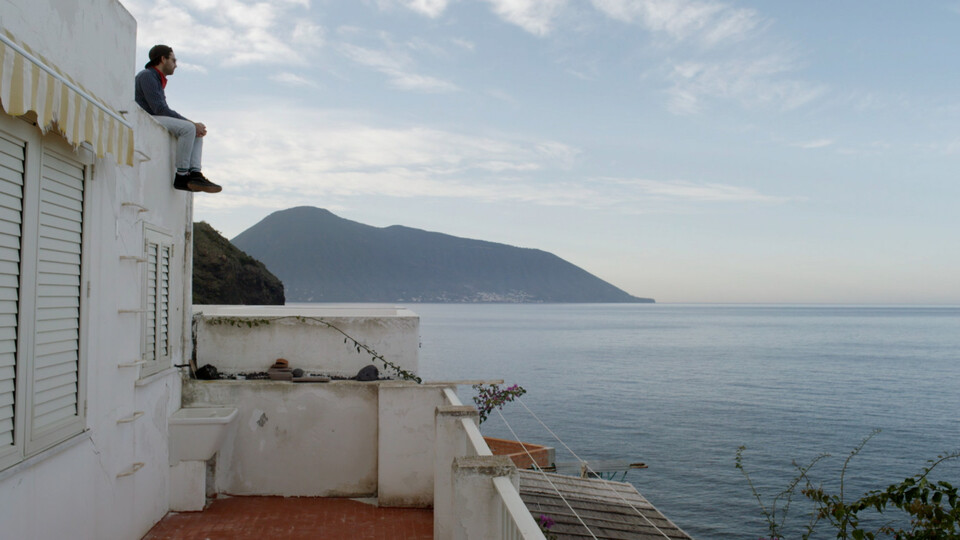Woman as a victim of the Afghan system
In 2021, the Portuguese documentary film festival Doclisboa dedicated one of its programme blocks to the topic of women in the patriarchal society of Afghanistan. While the two films screened, Orchestra from the Land of Silence (2020) and Oh Dear Sara (2021), differ in many ways, their chilling message takes on a particularly intense dimension given the current situation in the Middle East.
In recent years, the world has been afflicted by a global pandemic. While Western countries have been helped to some extent in their efforts to deal with the health crisis by a certain state stability, in many parts of the world prolonged revolutionary unrest has made the whole situation even more problematic. A case in point is Afghanistan, where decades-long conflicts have repeatedly escalated into problems in terms of both health and safety as well as social issues. It is precisely this social aspect of life in tumultuous Afghanistan that is the focus of the two aforementioned documentaries shown last year at Doclisboa – Orchestra from the Land of Silence and Oh Dear Sara – which present these social issues in the context of both the past and the present.
Music – an expression of freedom
The short film Orchestra from the Land of Silence by director Lucia Kašová represented Slovak documentary filmmaking at the festival. Through the film, which was commissioned by the Pohoda Music Festival in Trenčín, Slovakia, we are transported to Kabul, where in 2015 the first orchestra composed entirely of female musicians was formed. The group’s significance consists primarily in the fact that for many decades an extremely patriarchal society suppressed the basic needs of women, and the possibility of pursuing music in one’s spare time was therefore completely unacceptable. In the 1990s, the ruling Taliban banned any kind of free musical expression, and all that was allowed were religious chants exalting the actions of the extremist movement itself. In the context of these turbulent developments, the all-girl orchestra Zohra brings an important light of hope to an exclusively male society.
With the arrival of US troops in Afghanistan in 2001, the Taliban were overthrown, yet this did not spell the end of tumultuous conflicts in Afghan society. Even so, more attention gradually began to be paid to certain social issues, and the culmination of this development can be seen in Orchestra from the Land of Silence. The documentary gives space to everyday topics that do not appear very often in the media and tries to cleanse, at least somewhat, the stereotypical Western view of Afghan society defined by war and conflict. It is precisely music that has the ideological power to fight against social inequality as well as the constant threat of the return of extremist forces. The figure of orchestra director Ahmad Sarmast resonates particularly strongly in the film, with his motto “to conquer the beast with the beauty of music”.
The documentary follows teenage violinist Marzia and her preparations for her upcoming tour with the orchestra Zohra. Through her everyday concerns, the film depicts the wider sociocultural circumstances and highlights the tenuous acceptance of female musicians, which, despite Afghan society’s shift toward democracy, is still often downplayed. Although Marzia’s dream of becoming a professional violinist is viewed with disdain by most of the men around her, thanks to orchestra director Sarmast, she is able to spread her joy of music onward. In the film, owing to the collaboration with the Pohoda Music Festival, the orchestra sets out for Slovakia, where they are welcomed with open arms, in particular by younger audiences. However, the hopeful atmosphere of the film contrasts with the bitter reality in which several girls, with visions of a new life in a freer country, run away from the orchestra during their stay abroad and ask for asylum.
A few months before the film’s screening at the Doclisboa festival, the Taliban dictatorship returned to power in Kabul, which makes watching the film especially painful. The extremists once again banned free artistic expression and restricted the rights of women. In an interview with dok.revue, director Lucia Kašová mentions that shortly after the coup, the Taliban destroyed the orchestra’s musical instruments as well as the school itself. The girls had to go into hiding, but thanks to Ahmad Sarmast, they managed to get out of the country. However, tens of millions of people remain behind Afghanistan’s borders, and this chilling reality makes Orchestra from the Land of Silence not only an enthusiastic portrait of Kabul’s youth sharing the joy of music but also, above all, a very pressing treatise on how fragile freedom actually is.
A taxi driver is the face of the struggle for women’s rights
The Spanish-Serbian-Norwegian co-production Oh Dear Sara is about the first female taxi driver in the history of Afghanistan. Director Patricia Franquesa and protagonist Sara Bahai take us through the troubled streets of Kabul and offer us a glimpse of the daily hardships that come with working a typically male job in a patriarchal environment. Having never agreed to the Taliban’s edict forcing women to stay at home, Sara decided to become active in public life as a teacher and a member of the city council. She later became known as one of the most prominent faces in the struggle for women’s rights, which, of course, was accompanied by numerous acts of aggression, especially from men who couldn’t cope with her self-sufficiency and emancipation.
The documentary dedicates a great deal of time to scenes in which we drive with the protagonist in a yellow taxi through the crowded streets of Kabul, watching her at work. The film’s emotional dimension lies in the more personal moments, as we visit the protagonist’s friends and relatives, listening in on conversations and uncovering Sara’s past through silent, observational shots. Based on these private stories, we gradually learn that the protagonist, for example, had to wear boys’ clothes from the age of thirteen, but that this experience gave her confidence and courage. Thanks to scenes like these, we have the opportunity to uncover the hidden mechanisms of Afghan society in a non-violent way and to get at least a slightly better understanding of how difficult it is for women to grow up in the oppressive surroundings of the patriarchy.
Scepticism toward worsening living conditions and external pressures to change careers is also expressed very strongly in Oh Dear Sara. One fear that resounds particularly intensely throughout the story is the return of the extremist Taliban, who, in an attempt to quell emancipatory aspirations, would undoubtedly immediately target Sara as a central representative of the Afghan struggle for women’s rights. Although the protagonist comes across as determined and self-confident throughout the film, the possibility of a return to dictatorship is a thorny subject even for her – because she herself is aware that no one could protect her from potential danger.
At the festival in Lisbon, the documentary was accompanied by a delegation led by the director, who came forward after the screening to answer any questions. Seeing as the film was completed before the political upheaval in Kabul, the natural question was what happened to the protagonist next. Patricia Franquesa affirmed that the film had become a gateway to freedom for Sara. Because of it, she got the chance to leave on the last plane out of Kabul and settle in Portugal. However, like with Orchestra from the Land of Silence, the joy at hearing this information was immediately mixed with a feeling of helplessness because, unlike Sara, millions of other Afghan citizens were not given the same opportunity.
It’s difficult to imagine a documentary that addresses more pressing social issues than those presented by Orchestra from the Land of Silence and Oh Dear Sara. While Lucia Kašová’s film is told from the rather joyful and gradually more sceptical perspective of teenage girls, Patricia Franquesa’s documentary is abound in a far more oppressive atmosphere. However, both films, especially in the context of the current socio-political situation, strongly resonate with the audience and highlight specific women’s stories that reflect the extreme oppression of the new government, even as the media tends to greatly distort their true magnitude.
Translated by Brian D. Vondrak
---
This article is a result of the project Media and documentary 2.0, supported by EEA and Norway Grants 2014–2021.






